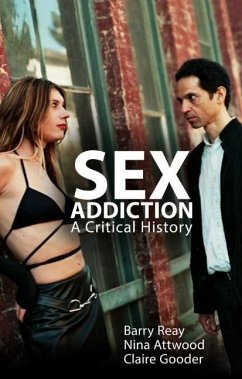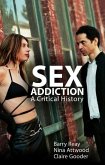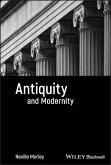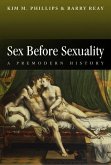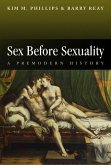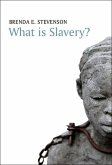The concept of sex addiction took hold in the 1980s as a product of late twentieth-century cultural anxieties. Though essentially mythical, creating a problem that need not exist, sex addiction has to be taken seriously as a phenomenon. Rarely has a socio-psychological discourse had such impact on the public imagination and proven an influential concept in academic circles too. Its success as a purported malady lay with its medicalization, both as a self-help movement in terms of self-diagnosis, and as a rapidly growing industry of therapists treating the new disease. The media played a role in its history, first with TV, the tabloids, and the case histories of claimed celebrity victims all helping to popularize the concept, and then with the impact of the Internet.
This book is a critical history of an archetypically modern sexual syndrome an examination of the power of an idea and its social context. Reay, Attwood, and Gooder argue that this strange history of social opportunism, diagnostic amorphism, therapeutic self-interest, and popular cultural endorsement is marked by an essential social conservatism: sex addiction has become a convenient term to describe disapproved sex. It is a label without explanatory force.
This book will be essential reading for those interested in sexuality studies, contemporary history, psychology, psychiatry, sociology, media studies, and studies of the Internet. It will also be of interest to doctors and therapists currently working in this and related fields.
This book is a critical history of an archetypically modern sexual syndrome an examination of the power of an idea and its social context. Reay, Attwood, and Gooder argue that this strange history of social opportunism, diagnostic amorphism, therapeutic self-interest, and popular cultural endorsement is marked by an essential social conservatism: sex addiction has become a convenient term to describe disapproved sex. It is a label without explanatory force.
This book will be essential reading for those interested in sexuality studies, contemporary history, psychology, psychiatry, sociology, media studies, and studies of the Internet. It will also be of interest to doctors and therapists currently working in this and related fields.
"This is an exquisitely researched, persuasive and often funny account of how, over the last thirty years, enjoying sex more publicly or enthusiastically than conservatives might have wished was turned into a phantasmic syndrome - sex addiction - that became real enough to support a small army of therapists and patients. But it is also a model study more generally of cultural epigenesis, of how the pains, pleasures and foibles of everyday life become pathologies that take a moral, political and financial toll on society." -- Thomas Laqueur, University of California, Berkeley
"As the sexual cultures of many Western nations have become more fluid, it is perhaps more than curious that the discourse of "sexual addiction" has gained popular and medical legitimacy. Is it a form of regulating "irregular" sexualities, a further instance of the medicalization of moral thinking and personal life, or a scientific advance? Reay, Attwood and Gooder provide a much needed critical-historical analysis of this cultural event." -- Steven Seidman, State University of New York at Albany
"As the sexual cultures of many Western nations have become more fluid, it is perhaps more than curious that the discourse of "sexual addiction" has gained popular and medical legitimacy. Is it a form of regulating "irregular" sexualities, a further instance of the medicalization of moral thinking and personal life, or a scientific advance? Reay, Attwood and Gooder provide a much needed critical-historical analysis of this cultural event." -- Steven Seidman, State University of New York at Albany

